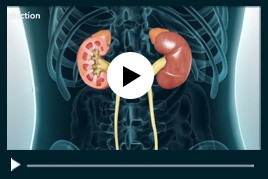Pyeloplasty
Pyeloplasty is a surgery which helps in the removal of blockages in the ureter. The urinary system consists of the kidneys, ureters and urinary bladder. The kidneys purify blood to form urine which passes through the ureters into the bladder and is excreted from the body through the urethra. Sometimes, a ureter may be blocked obstructing the flow of urine into the bladder. The block may be present at birth or may appear later in life due to a blood vessel blocking the ureter or from an area of scar tissue. If left untreated it can cause damage to the kidneys.
How is the procedure performed?
Pyeloplasty is performed under general anaesthesia and takes about 1 ½ to 2 1/2 hours. During the surgery an incision is made either in the back, side or on your abdomen. Your doctor locates the blockage in the ureter, removes the affected area and re-joins the ends of the ureter with sutures. A stent is inserted so that the ureter remains open and stable during the healing process and will be removed later. The incision is then closed with the help of sutures. You will be able to eat or drink soon after the surgery; however, you will be asked to stay in the hospital for about 2 days following the surgery for monitoring.
What risks and complications are involved?
Like most surgical procedures pyeloplasty also has certain risks such as bleeding and infection at the site of the surgery, pain, injury to nearby organs and failure of the surgery due to recurrent scarring.

 Menu
Menu




